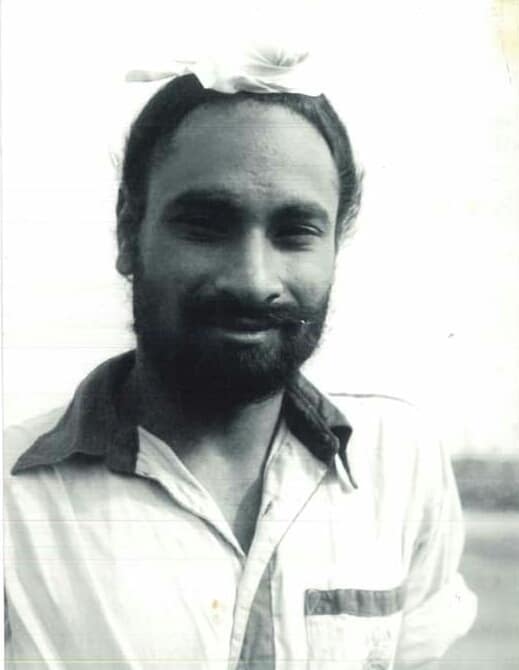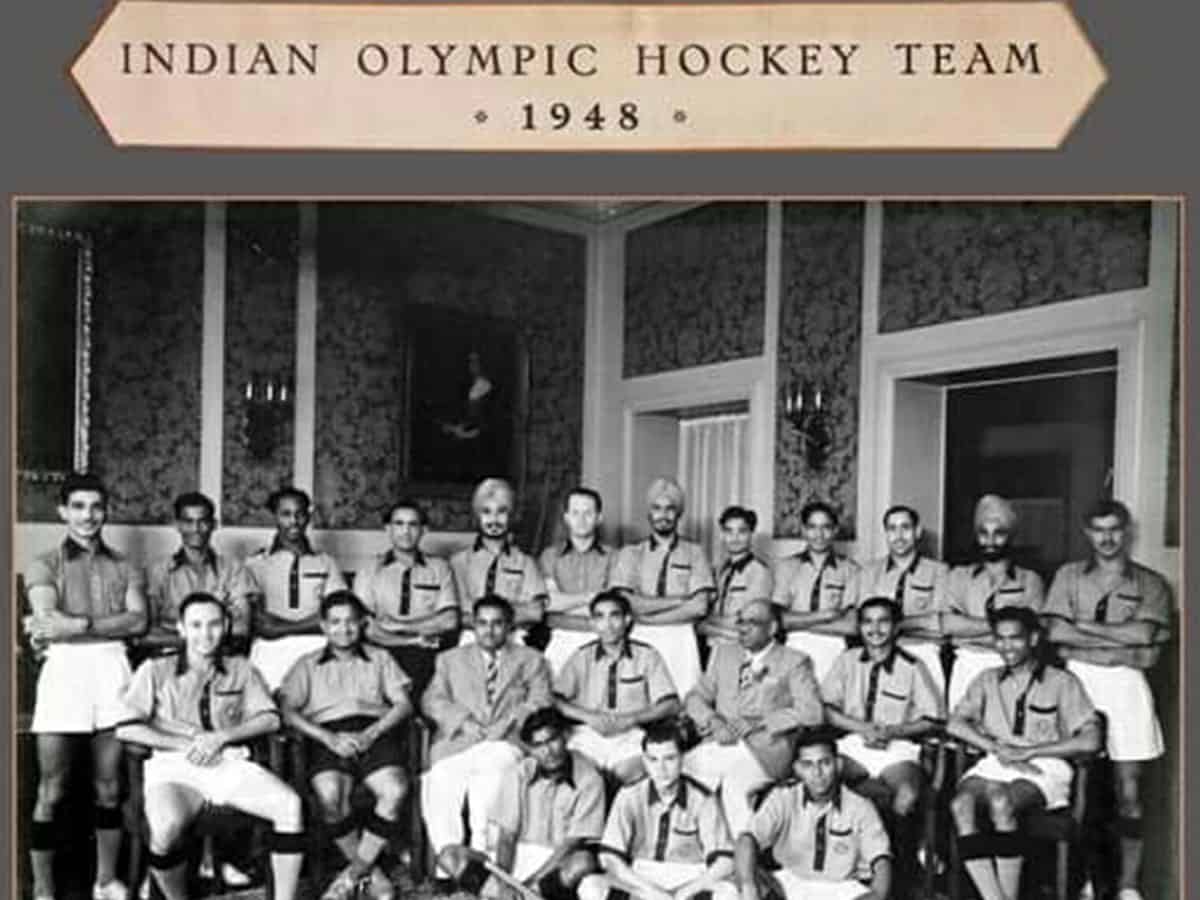When one is suddenly and violently uprooted from the land of one’s forefathers, it is a trauma that can only be felt and described by those who have experienced it. It entails a loss of many things such as property, security and identity to name a few. But perhaps the biggest loss is that of friendship and separation from the people and the culture that was an essential part of one’s life.
All those who went through the partition of India in 1947 have experienced this agony. This is the incredible story of four friends told in the film Taangh made by Bani Singh, daughter of Nandy Singh, the hockey player who had won gold medals in the Olympic Games in 1948 and 1952. Nandy’s full name was Grahanandan Singh and he was born in Lyallpur (now called Faisalabad in Pakistan) in 1926. It is a story which seems to be like a Bollywood film but all this really happened.

His daughter Bani Singh speaking to siasat.com said:
“Like many other children, my father took up the sport of hockey from a young age. He studied at the Government College in Lahore where his closest friends were Keshav Datt, Amir Kumar and Muhammad Shahzada Shahrukh. These four friends, one Sikh, two Hindus and one Muslim, were inseparable. They studied together, ate together and played together. What created an unbreakable bond between them was hockey. They were all very skilled hockey players.”
“They took their college to many victories and then represented Punjab University in the All India universities championship. Then all four went on to represent Punjab state which became the national champion of undivided India. The hockey magic of the four friends continued into their later careers and amazingly all four of them went on to play in the Olympic Games. The college team’s captain was Shahrukh who was not only an excellent hockey player but also a very good cyclist and boxer,” said Bani.
But little did these four college friends know that their days of carefree happiness would soon end. A political hurricane came along and blew away all peace and tranquility. It changed the lives of the people forever. India attained freedom but at a heavy price. The country was partitioned in a hasty manner and millions of people were forced to leave their homeland. Muslims fled westwards to the newly created Pakistan. The Sikhs and Hindus who were living in the west fled to the east. Tens of thousands lost their lives in savage communal riots.
And the four friends were forced away from each other. Shahrukh remained in Pakistan while Amir, Keshav and Nandy bid goodbye to their childhood haunts and made their way into India. The next time they met on the hockey field, at the 1948 Olympic Games, they were in rival teams. Shahukh was wearing the green jersey of Pakistan and the other three were in the blue jersey of India. That tournament was won by India while Pakistan lost to Great Britain thereby leaving Shahrukh completely devastated.
Although the pain of partition lingered in their hearts like a wound that would never heal, the four friends continued to pursue their sport as well as they could. Shahrukh continued to represent Pakistan in hockey and also took part in four cycling events at the Melbourne Olympics in 1956.
Keshav Datt played for India in the 1948 and 1952 Olympics and won gold medals each time. Amir Kumar also ended up winning two Olympic golds, in 1948 and in 1956.
As for Grahanandan Singh, or Nandy Singh as he was popularly known, he played in the inside right position and was the dangerman for all rivals. He bagged two Olympic golds in 1948 and 1952.
After a brief stint in the Calcutta Port Trust (when he represented Bengal), Nandy Singh joined the Indian Navy and from 1949 to 1958 he played for Services. He retired from the Indian Navy with the rank of commander. During his military service, Nandy was secretary of the Services Sports Control Board and was very active in Indian hockey. He served as chairman of the national Selection Committee and also managed the Indian team at the 1984 Olympics. He was the Indian chef-de-mission at the 1970 and 1974 Asian Games and was also secretary of the Technical Conduct Committee at the 1982 Asian Games.
Unfortunately, he later suffered a stroke and lost the use of his right arm and the ability to speak. It was a massive blow for a man who had been very active and fit. But several years ago his daughter Bani got the idea of making a film about her father and his achievements incorporating the background and the culture that he grew up in, during the pre-partition days.
Says Bani: “I wanted to make a film which would travel back into the past when he had been happier. My father always used to say – go and meet my buddies. I interacted with Keshav Datt who was living in Kolkata. But Amir Kumar had passed away earlier. Then, in 2014, I traveled to Lahore. The trip proved to be an eye opener and made me more aware of my own culture and traditions. I visited the Government College where I was treated like a VIP. After some difficulty I managed to locate Shahzada Shahrukh and it was extremely interesting to meet him and talk to him. He too was overjoyed to see me. He was almost 90 years old but he remembered all his friends and asked about them.”
“After I returned, I told my father about my experiences in Pakistan. He was overwhelmed when he heard that Shahrukh had sent his love and greetings. But sadly, a few months after my trip, my father passed away. Shahrukh too followed in 2015 and Dutt in 2021. They left all of us with only memories of their friendship and their achievements. Now my film titled Taangh (the word means “longing” in Punjabi) has been completed and people have seen it and appreciated it. But now all the four friends are together in spirit,” said Bani.
Abhijit Sen Gupta is a seasoned journalist who writes on Sports and various other subjects

